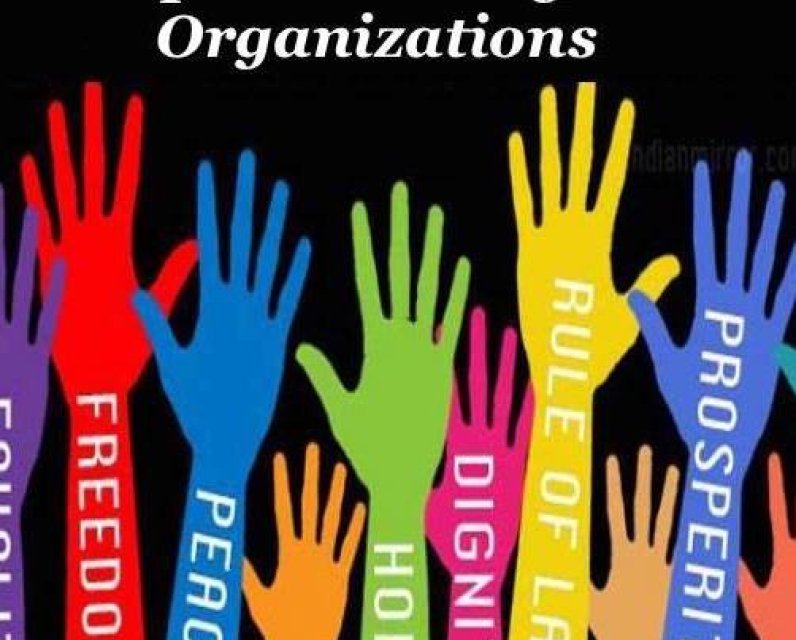Warning message
- Last import of users from Drupal Production environment ran more than 7 days ago. Import users by accessing /admin/config/live-importer/drupal-run
- Last import of nodes from Drupal Production environment ran more than 7 days ago. Import nodes by accessing /admin/config/live-importer/drupal-run
Unpublished Opinions
Founder and President of democracy think-tank, Section 1, Senior Fellow of Massey College, Centre Associate of the UBC Centre for Constitutional Law and Legal Studies, Canadian International Council Advisory Board Member, Chair Emeritus of the Jane Goodall Institute, and editor, most recently, of The Notwithstanding Clause and the Canadian Charter (McGill-Queen`s University Press)
Peter Biro: The deafening silence of the international 'human rights' establishment: Rights groups pursued Israel without acknowledging Hamas’ genocidal purpose, trivializing and hiding the Oct. 7 pogrom entirely

Originally published in the National Post and now shared here on Unpublished.ca by Peter Biro, a member of the Unpublished Media community.
How can the Nazis’ fanatical hatred of the Jews be explained? Answering the question, Italian scientist, writer and Holocaust survivor Primo Levi said, “Perhaps one cannot — what is more, one must not — understand what happened, because to understand is almost to justify.” While the blood of Hamas’s Oct. 7 victims was not yet dry, human rights activists around the world were already pivoting away from condemning the atrocities to “contextualizing” the attacks as legitimate Palestinian “resistance” to decades of injustice at Israel’s hands, and to foretelling and decrying the “war crimes” about to afflict the already distressed population of Gaza by its “settler-colonial occupier.”
Numerous human rights NGOs, scholars and activists issued statements similar to that of Amnesty International on Oct. 8, which mentioned “international law” and the “root causes” of violence before demanding the end of “Israel’s 16-year-long illegal blockade on Gaza, and all other aspects of Israel’s system of apartheid imposed on all Palestinians.”
This was followed by weeks of professed skepticism — even amongst feminists — concerning the revelations of already well-documented, indescribably depraved sexual violence perpetrated by Hamas terrorists on Israeli women, and of unimaginable barbarism and savagery on Oct. 7. In the ensuing weeks, most of the hostages would remain captive, if they were not already dead. Hamas missile launches would continue unabated, and the Israeli military foray into Gaza would dislocate 85 percent of the population, and kill thousands of Palestinians. Hamas would be no
closer to elimination, especially with some of its top leadership luxuriously ensconced in Doha. The human rights community — comprised of the professional and civil society “human rights” activists, advocates, academics, interest groups, NGOs (such as Amnesty International and Human Rights Watch), and intergovernmental and global governance agencies and institutions (including the United Nations Commission on Human Rights) — got part of the story right: Gaza would become a humanitarian catastrophe, which the local Palestinian population, and also its global diaspora, will not soon recover from, and which could serve to radicalize yet another generation of young Palestinians in the cause of anti-Zionism.
For the rest, Oct. 7 and its aftermath may prove to have been the ethical nadir of an otherwise righteous, long and heroic tradition of human rights activism, culminating, some 100 days in, with Israel in the prisoner’s dock in the Hague, defending charges of “genocide” brought by South Africa at the longstanding and unrelenting urging of the human rights groups, whose advocacy has, unintentionally but also undeniably, fuelled an already skyrocketing escalation in global antisemitism. Had there been real interest in and inquiry into the manifestation of genocidal intent, Israel’s accusers might simply have perused the pages of Hamas’s charter, which demands the destruction of Israel and the death of Jews wherever they may be. Instead, South Africa searched under rocks and undertook a predetermined psycho-exegesis of ambiguous and largely unofficial statements made by wayward politicians, subjecting those statements to pained, if not also perverted, interpretations of the 1948 Convention on the Prevention and Punishment of the Crime of Genocide, to produce evidence of genocidal intent on the part of Israel.
Humanitarian law traces its origins back to the 1864 Convention for the Amelioration of the Condition of the Wounded in Armies in the Field (the original Geneva Convention), and perhaps even back to time of the Amorites, when Hammurabi proclaimed that his laws were established to “prevent the strong from oppressing the weak.” But as the UN High Commissioner for Human Rights, Michelle Bachelet reminded the world in 2022, “the UN Charter and the Universal Declaration of Human Rights were conceived out of the Holocaust and two World Wars.”
Let us not mistake midwife for mother. The Universal Declaration of Human Rights may have been called for by many nations and groups advocating for change, but it was evil on a level and scale arguably never-before experienced in history, and a shocked global conscience, that served as impetus for international human rights and humanitarian law. However, as the subsequent decades of mass atrocities and human rights crimes around the world underscore, the law is no match for its own raison d’être.
And, then there was Oct. 7. Hamas’s own actions were not mere atrocities or acts of terrorism. They constituted a concerted pogrom, presaged in and dictated by Hamas’s own charter. The instantaneous pivot to “contextualizing” and to a prosecutorial focus on Israel’s perceived crimes without acknowledging Hamas’ genocidal purpose (or Iran’s, and Russia’s, geopolitical objectives of derailing the Saudi-Israel normalization project and deflecting attention away from the war in Ukraine) served to trivialize Hamas’ crimes and ignore the pogrom entirely.
The failure to appreciate the psychological and emotional reaction of the Israeli people and, indeed, of the Jewish diaspora, to the Hamas attacks has already played a non-trivial role in the explosion of hate speech directed at Jews everywhere. But how, given all we have endeavoured to comprehend about evil — its ineffability, its banality, from Dante to Arendt — could the self-appointed guardians of human rights not acknowledge evil when it showed up in such transparent fashion on Oct. 7? How could they overlook the background condition of an entire people’s psychology of “pogrom” in the aftermath of the Holocaust, and of the corresponding prerogatives and implications of the survivors’ mantra, “NEVER AGAIN”?
One needn’t condone the occupation nor the Israel Defense Forces’ action plan to acknowledge the PTSD at work in these circumstances. Oct. 7 evoked a collective memory, a genuine, existential fear, and the reflexive activation of a solemn, collective covenant to never again march obediently to the gas chambers, whatever the cost. And here, we take care to distinguish between understanding the psychology of pogrom and justifying, without qualification, the real-world existential response thereto.
But evil must be named: Pogrom! And its meaning must be crystal clear. The Oxford Dictionary of Phrase and Fable defines it as an “organized massacre of a particular ethnic group, in particular that of Jews in Russia or eastern Europe.” And that, after all, is Hamas’s codified mission.
Instead of giving Hamas’s genocidal massacre the critical examination it merited, human rights advocates shifted into prosecutorial gear, leveling the charges of genocide, apartheid and collective punishment, and reverting to its standard portrayal of Israel’s 1948 War of Independence as the original sin, purporting to ground the case for the early Zionists as “settler-colonialists” and for Israel’s illegitimacy as a nation-state.
“’Israel’ is not a country, it is the brand of a settler colony,” some 74 students of one Toronto law school declared in an open letter on Oct. 20. Human rights activists wasted no time in charging to the students’ aid, defending their civil liberties and their right to “contextualize” Hamas’s atrocities as legitimate resistance. The language of vilification and indictment that has characterized the discourse of contemporary human rights advocacy has never served the cause of Palestinian human rights terribly well. One cannot demonize one’s way to peace and to political solutions.
A well publicized Dec. 15 statement signed by 35 lawyers, scholars and activists broadly representative of the thinking within human rights groups and entitled, “Palestinian rights advocacy and international law,” declared that, “Terms such as ‘occupation,’ ‘apartheid,’ and ‘genocide’ have established legal meanings, applicable to Israel’s actions and practices towards Palestinians.”
It is noteworthy that the statement contains nary a word about how the term “pogrom” also has an established meaning and meticulously documented dark history applicable, most recently, to Hamas’s actions towards Israelis and, in particular, towards Jews. It is especially telling that the word “pogrom” — and the reality for which it stands — scarcely appears in the these activists’ findings, advocacy or lexicon pertaining to Oct. 7.
It is one thing to resist understanding evil in order to avoid its justification, as Primo Levi posited. But to justify it by way of concerted indifference to its nature is an especially execrable moral transgression.



Comments
Be the first to comment